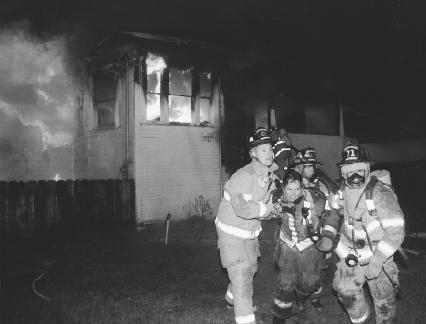Smoke Inhalation - Treatment
The primary goal in treating smoke inhalation is to make sure that the patient is getting enough oxygen. Two steps may be necessary to achieve this objective. First, the patient's airway has to be kept open. In some cases, the patient may be breathing easily and normally. This condition suggests that the airway is open and functioning normally. In that case, all that may be necessary is to give the patient oxygen through a mask that delivers pure oxygen or air enriched with oxygen to his or her body.
If the patient is wheezing, his or her airway may be constricted (narrowed) or blocked. In that case, the first step is to open up the airways. One way to do this is to give the patient a bronchodilator (pronounced brahng-KO-DI-lay-tor). A bronchodilator is a substance that causes muscles in the respiratory system to relax. As they relax, the tubes through which air gets

into the lungs become larger. The patient is able to breathe more easily. At this point, oxygen may also be given.
In some cases it may be necessary to insert a tube into the patient's respiratory system through the nose. Oxygen can then be provided through the tube.
Other forms of treatment may be necessary also. For example, the smoke inhaled may have contained certain toxic substances. Blood tests will often show the presence of these toxic substances in the blood. They can then be treated with other substances that will react with the toxic materials and make them harmless.

Comment about this article, ask questions, or add new information about this topic: